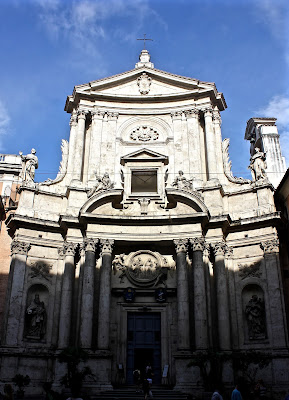Celebrating God's light in Rome.
As Christians, our roots lie in Judaism; very few people know that the oldest Jewish community in Europe can be found in the Eternal City, dating back to before Christianity, it even pre-dates it as the longest continuing religion of Rome, for example, the first catacombs in Rome were Jewish, testimonies of Judaism in Rome can be found anywhere, in Ancient Rome, Jews generally had enough freedom, Caesar even granted them the possibility of keeping Shabbat, however, in 70 AD the Romans sacked Jerusalem and destroyed the Second Temple, they stole the Menorah, that moment still lives on a relief on the Arch of Titus in the Forum. A community so old, that is neither Ashkenazi or Sephardi, but simply Roman, so old that it is Roman cuisine that was influenced by their cuisine, and not viceversa. Rome might be the historical home of the Vatican, but Judaism was here before, long before there was even a Christianity, and it is fascinating that this Festival of Lights, this feast of God's Light is still celebrated along Christmas.
Today marks the beginning of a very well known Jewish feast; Hanukkah or Chanukah is an eight days long celebration that marks the rededication of the second Holy Temple of Jerusalem in the 2nd century BC, after the Maccabean Revolt during the Seleucid Empire. According to legend, once the Maccabees returned to Jerusalem, they entered the Temple and cleared it of the Syrian idols, they had to make a new Menorah as the previous one was stolen, and when they needed to light it, they found only a small cruse of pure olive oil bearing the seal of the High Priest, it was only sufficient for one day.
Today marks the beginning of a very well known Jewish feast; Hanukkah or Chanukah is an eight days long celebration that marks the rededication of the second Holy Temple of Jerusalem in the 2nd century BC, after the Maccabean Revolt during the Seleucid Empire. According to legend, once the Maccabees returned to Jerusalem, they entered the Temple and cleared it of the Syrian idols, they had to make a new Menorah as the previous one was stolen, and when they needed to light it, they found only a small cruse of pure olive oil bearing the seal of the High Priest, it was only sufficient for one day.
However, by a miracle of God, it continued to burn for eight days, symbolising that he had taken his people under his protection. To this day, Hanukkah is celebrated by lighting one candle of a Chanukah Menorah for each of the 8 days, with one central candle, the Shammash (servant) used to light the others, and representing the little oil left. This ceremony is repeated in every Jewish home, while reading the Hanukkah Blessings:
Blessing over Candles
Praised are You,
Our God, Ruler of the universe,
Who made us holy through Your commandments
and commanded us
to kindle the Hanukah lights.
Blessing for the Hanukkah Miracle
Praised are You,
Our God, Ruler of the universe,
Who performed wondrous deeds for our ancestors
in those ancient days
at this season.
Shehecheyanu
(First Night Only)
Praised are You, Our God, Ruler of the universe, Who has given us life and sustained us and enabled us to reach this season.
The feast symbolises another occasion on which God took care of his people, it is also known as Festival of the Lights, as it symbolises the triumph of light over darkness, and Jews every year, in December, spread this light of God. Here in Rome, there are several Menorahs spread throughout the city, a large one is at the Great Synagogue and the other, 20 ft tall, is in the Piazza Barberini, a small ceremony with blessings of the Hanukkah lights takes place in the evening (6pm or 4pm and 7:30pm on Saturdays, to make allowances for the Shabbat), attracting large crowds.
Like, Christmas, Hanukkah is a family-focused affair with lots of food and merriment, it is the right time to have a great meal in the historic Jewish Ghetto of Rome, have some traditional donuts or chocolate coins for children at the local bakeries, and spot lit Menorahs popping from many windows! For us Christians, Hanukkah has a special significance as well, as a Jew, we know that our Lord Jesus celebrated it too: now it was the Feast of Dedication in Jerusalem, and it was winter. And Jesus walked in the Temple, in Solomon’s porch (John 10:22-23). What's better than celebrating God's light in Rome, in the use of the Jews in the Eternal City before the coming of Christ and in the use of Christ himself? חַג שָׂמֵחַ. Hanukkah Sameach!




